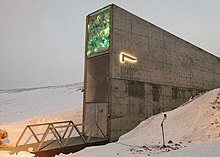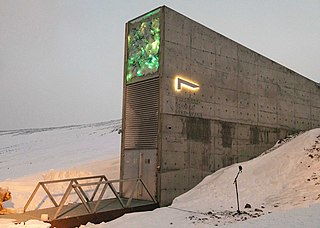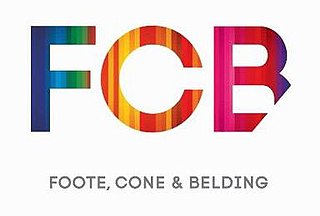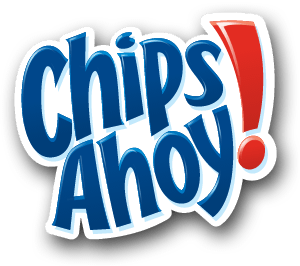
The Global Oreo Vault was a 2020 publicity stunt by Nabisco in which the Oreo cookie recipe was stored in a concrete bunker nearby to the Svalbard Global Seed Vault.

The Global Oreo Vault was a 2020 publicity stunt by Nabisco in which the Oreo cookie recipe was stored in a concrete bunker nearby to the Svalbard Global Seed Vault.

In October 2020, Nabisco announced on social media that it had created a small concrete bunker in Svalbard, Norway, to preserve the Oreo recipe in the event that the 2018 VP1 asteroid impacted the Earth on November 2 or 3, 2020. [1] [2] However, astronomers noted that the asteroid was extremely unlikely to impact the earth. [3] [4] The image of the vault was based on the real life Svalbard Global Seed Vault, [3] [5] and its supposed coordinates (78°08'58.1"N, 16°01'59.7"E; satellite imagery from early 2021 shows no evidence of ground disturbance at the site - an actual structure is highly unlikely) were placed near the seed vault. [6] The vault supposedly contained Oreos wrapped in Mylar, powdered milk and the recipe for Oreo cookies. [7] The campaign was inspired by a tweet posted on October 3, 2020. [8] [9] The company uploaded a series of scripted parody videos about the vault to YouTube, [10] and released social media content which built up to a mockumentary about the vault's creation. [8] [11] The stunt was created by the Oreo marketing team and advertising agencies 360i and The Community. [8]
The campaign was nominated for and received several awards for advertisements and online content. It was nominated for a 2020 Clio Award, [12] and 2021 Webby Award, [13] and won a 2021 Muse Award, [14] Shorty Award, [15] and Cresta Award. [16] The campaign also won Adweek's Reader's Choice bracket for marketing events of the year. [8]

A cookie or biscuit is a baked snack or dessert that is typically small, flat, and sweet. It usually contains flour, sugar, egg, and some type of oil, fat, or butter. It may include other ingredients such as raisins, oats, chocolate chips, or nuts.

Oreo is a brand of sandwich cookie consisting of two cocoa biscuits or cookie pieces with a sweet fondant filling. It was introduced by Nabisco on March 6, 1912, and through a series of corporate acquisitions, mergers, and splits, both Nabisco and the Oreo brand have been owned by Mondelez International since 2012. Oreo cookies are available in over one hundred countries. Many varieties of Oreo cookies have been produced, and limited-edition runs have become popular in the 21st century.

Nabisco is an American manufacturer of cookies and snacks headquartered in East Hanover, New Jersey. The company is a subsidiary of Illinois-based Mondelēz International.
A knowledge ark is a collection of knowledge preserved in such a way that future generations would have access to said knowledge if all other copies of it were lost.

Cookies and cream is a variety of ice cream, milkshake, and other desserts that includes chocolate sandwich cookies, with the most popular version containing hand or pre-crumbled cookies from Nabisco's Oreo brand under a licensing agreement, or else, containing crumbles of a similar cookie of a different brand or private label. Cookies and cream ice cream generally mixes crumbled chocolate sandwich cookies into vanilla ice cream, though variations exist which might instead use chocolate, coffee or mint ice cream.

The Svalbard Global Seed Vault is a secure backup facility for the world's crop diversity on the Norwegian island of Spitsbergen in the remote Arctic Svalbard archipelago. The Seed Vault provides long-term storage for duplicates of seeds from around the world, conserved in gene banks. This provides security of the world's food supply against the loss of seeds in genebanks due to mismanagement, accident, equipment failures, funding cuts, war, sabotage, disease, and natural disasters. The Seed Vault is managed under terms spelled out in a tripartite agreement among the Norwegian government, the Crop Trust, and the Nordic Genetic Resource Center (NordGen).

The Crop Trust, officially known as the Global Crop Diversity Trust, is an international nonprofit organization with a secretariat in Bonn, Germany. Its mission is to conserve and make available the world's crop diversity for food security.

Foote, Cone & Belding (FCB) is one of the largest global advertising agency networks. It is owned by Interpublic Group and was merged in 2006 with Draft Worldwide, adopting the name Draftfcb. In 2014 the company rebranded itself as FCB.

Teddy Grahams are bear-shaped graham cracker snacks created by Nabisco. Introduced in 1988, Teddy Grahams come in two distinct shapes: bear with arms up and legs closed, and bears with legs open and arms down. Along with variations with arms up, legs together, and arms down legs apart. When first introduced, Teddy Grahams were available in honey, cinnamon, and chocolate flavors. Since then, they have added chocolatey chip as one of the four main varieties. They also had vanilla, banana, birthday cake, mixed berry, strawberry banana, and apple flavors but they have been discontinued.

Nilla Wafers are vanilla-flavored, wafer-style cookies made by Nabisco, a subsidiary of Illinois-based Mondelēz International.

Chips Ahoy! is an American chocolate chip cookie brand, baked and marketed by Nabisco, a subsidiary of Mondelez International, that debuted in 1963. Chips Ahoy! cookies are available in different variations such as, original, reduced-fat, chunky, chewy, and candy-blasts; each can be identified by variations in the color of the package. For example, Chips Ahoy! original has blue color packaging, while Chips Ahoy chewy has a red packaging.

Nutter Butter is an American sandwich cookie brand, first introduced in 1969 and currently owned by Nabisco, which is a subsidiary of Mondelez International. It is claimed to be the best-selling U.S. peanut butter sandwich cookie, with around a billion estimated to be eaten every year.

Hydrox is a creme-filled chocolate sandwich cookie currently owned and manufactured by Leaf Brands. It debuted in the United States in 1908, and was manufactured by Sunshine Biscuits for over 90 years. Hydrox was largely discontinued in 1999, three years after Sunshine was acquired by Keebler, which was later acquired by Kellogg's which in turn sold the cookie line and the rights to the Keebler name to Ferrero SpA. In September 2015, the product was reintroduced by Leaf Brands.

Morgan Carrington "Cary" Fowler Jr. is an American agriculturalist and the former executive director of the Crop Trust, currently serving as U.S. Special Envoy for Global Food Security. He is the 2024 World Food Prize laureate.

The economy of Svalbard is dominated by coal mining, tourism and research. In 2007, there were 484 people working in the mining sector, 211 people working in the tourism sector and 111 people working in the education sector. The same year, mining gave a revenue of 2.008 billion kr, tourism NOK 317 million and research 142 million. In 2006, the average income for economically active people was NOK 494,700, or 23% higher than on the mainland. Almost all housing is owned by the various employers and institutions and rented to their employees; there are only a few privately owned houses, most of which are recreational cabins. Because of this, it is nearly impossible to live on Svalbard without working for an established institution. The Spitsbergen Treaty and Svalbard Act established Svalbard as an economic free zone and demilitarized zone in 1925.

360i was a New York City-based digital agency founded in 1998. It was a business unit of Dentsu.
The Arctic World Archive (AWA) is a facility for data preservation, located in the Svalbard archipelago on the island of Spitsbergen, Norway, not far from the Svalbard Global Seed Vault. It contains data of historical and cultural interest from several countries, as well as all of American multinational company GitHub's open source code, in a deeply buried steel vault, with the data storage medium expected to last for 500 to 1,000 years. It is run as a profit-making business by private company Piql and the state-owned coal-mining company Store Norske Spitsbergen Kulkompani (SNSK).
The 2020 Webby Awards ceremony was posted online on May 19, 2020, and was hosted by Patton Oswalt. Named Webbys From Home, it recognized the best of Internet content. Due to the COVID-19 pandemic, the award ceremony was held virtually at the organization's official website with pre-recorded material at remote locations. The ceremony included guest appearances from Michelle Obama, Kristen Bell, Tom Hanks, Demi Lovato, Anthony Fauci, Jill Scott and Questlove, among others. The awards were dedicated "to honoring individuals and organizations who are using the internet in response to the coronavirus pandemic".
The COVID-19 pandemic in Svalbard is part of the worldwide pandemic of coronavirus disease 2019 caused by severe acute respiratory syndrome coronavirus 2. The virus was confirmed to have reached Svalbard on 6 October 2021.